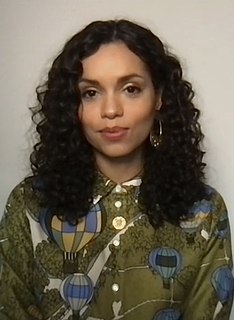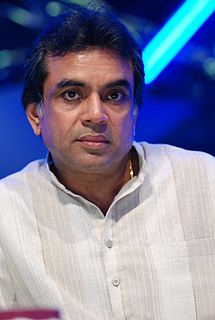A Quote by Frances McDormand
I became interested in educating people in the variety of ways in which women can express their emotion. Which is much easier to do in a large role than in a supporting role to a male protagonist. In general, the women in a supporting role to a male protagonist - cry a lot.
Related Quotes
I realized that many men are happy to play a supporting role to another man, but they are much less happy to play a supporting role to a woman. People are saying we need more females in our industry and we need more female-driven stories, but that takes the men of bankable star quality to come forward and play supporting roles in those films, because ultimately that's what the women have always done. We've always lent our name value to male-centric stories, and now we're going to have to ask the men to swallow their pride, because it seems that it's about pride.
If I have a male protagonist, it's a studio movie, and if it's a female protagonist, it's an indie movie. That's just how it is. It's not about the studios. It's about America and who goes to see movies. Women are interested in men and women, and men aren't interested in the woman's story. They just aren't.
Just as the good actor perform well whatever role the poet assigns, so too must the good man perform whatever Fortune assigns. For she, says Bion, just like a poet, sometimes assigns the leading role, sometimes that of the supporting role; sometimes that of a king, sometimes that of a beggar. Do not, therefore, being a supporting actor, desire the role of the lead.
I would probably choose supporting roles if I had to make a choice. It's actually a really hard thing to say. It's all on a role-by-role basis, ultimately. I shouldn't be so quick to say that. I feel like you're given greater license to be colorful and eccentric in supporting roles, and that's interesting to me.
Even the new feminist research on sex-role socialization and sex differences has sometimes had the unfortunate consequence of creating a new set of stereotypes about what women feel and how women behave. Despite the large amount of overlap between the sexes in most research, the tendency to label and polarize and thus to exaggerate differences remains in much reporting of data, which may, for example, report the mean scores of male and female populations but not the degree of overlap.
Traditionally, women didn't have much a role in Buddhism. The books were all written by monks, for other monks. So the general view of the feminine was rather misogynistic, with women playing the role of the forbidden other, waiting to pounce on innocent little monks! In that society, it was hard for women to become educated and get the deeper teachings and really become accomplished.




































